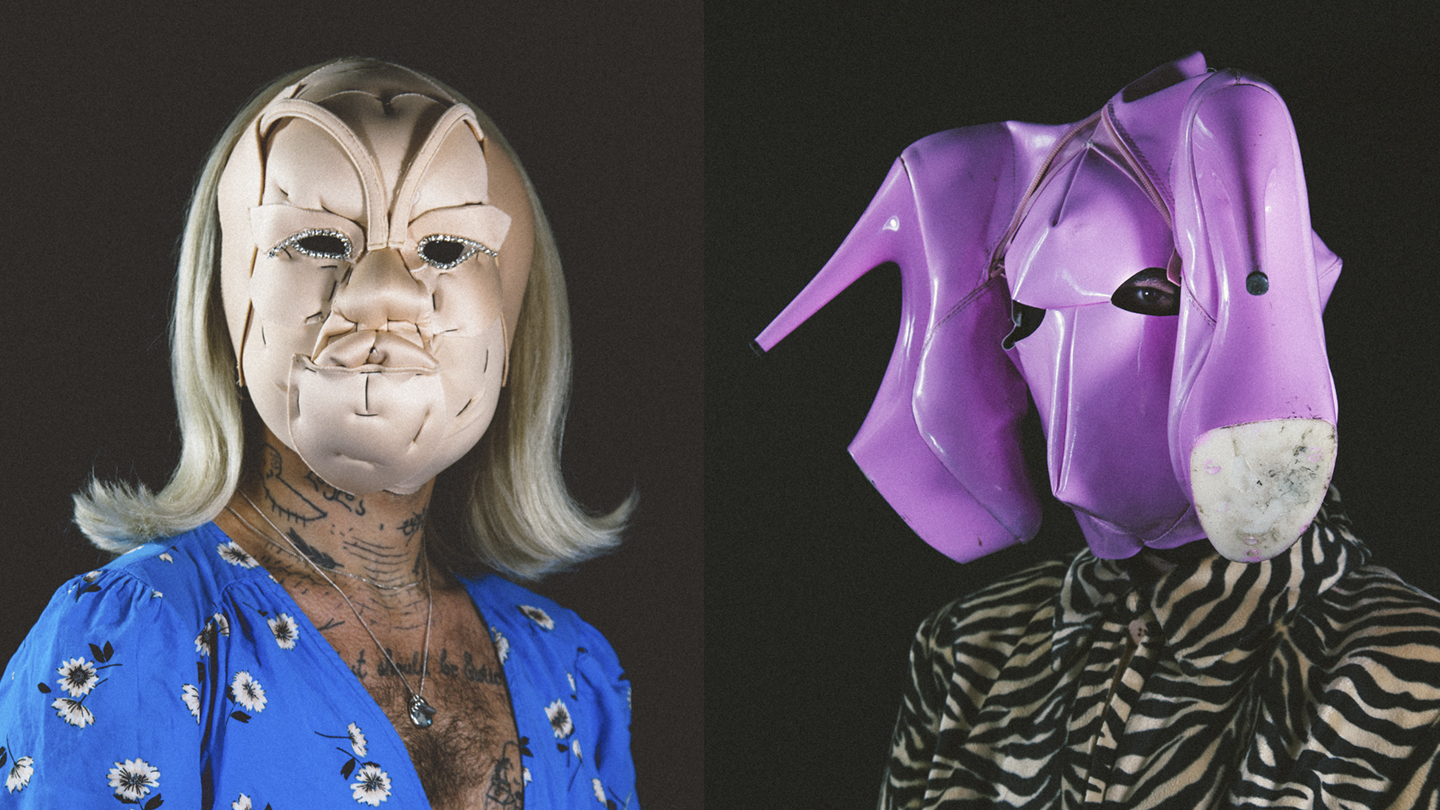This article originally appeared on i-D NL.
“I am furious, but I’ve told myself that I have to move on,” Shalva Nikvashvili says. The 28-year-old artist left his homeland of Georgia five years ago after his family found out that he was gay. Shalva is furious because of the angry messages his family members have sent him. One day before the interview, they discovered he was running an Instagram account under his family name. “They are scared to death that people around them will find out what I’m doing here. They want me to take down my account, but that’s not going to happen. My brother sent me death threats yesterday.” I’m stunned. I got in touch with Shalva because of the art he posts— a carefully curated collection of sketches and self-portraits of masks that he designs.
Shalva tells me that there was no place for his artistic dreams in the ultra-conservative family he grew up in. When they found out that he was gay, they asked him to pack his bags and leave. He ended up in Ghent, where he married a Belgian boy with whom he broke up with later. Shalva felt liberated at the time, since he had always felt suffocated in his home country, but then, a long waiting period began to get a residence permit or a work permit.
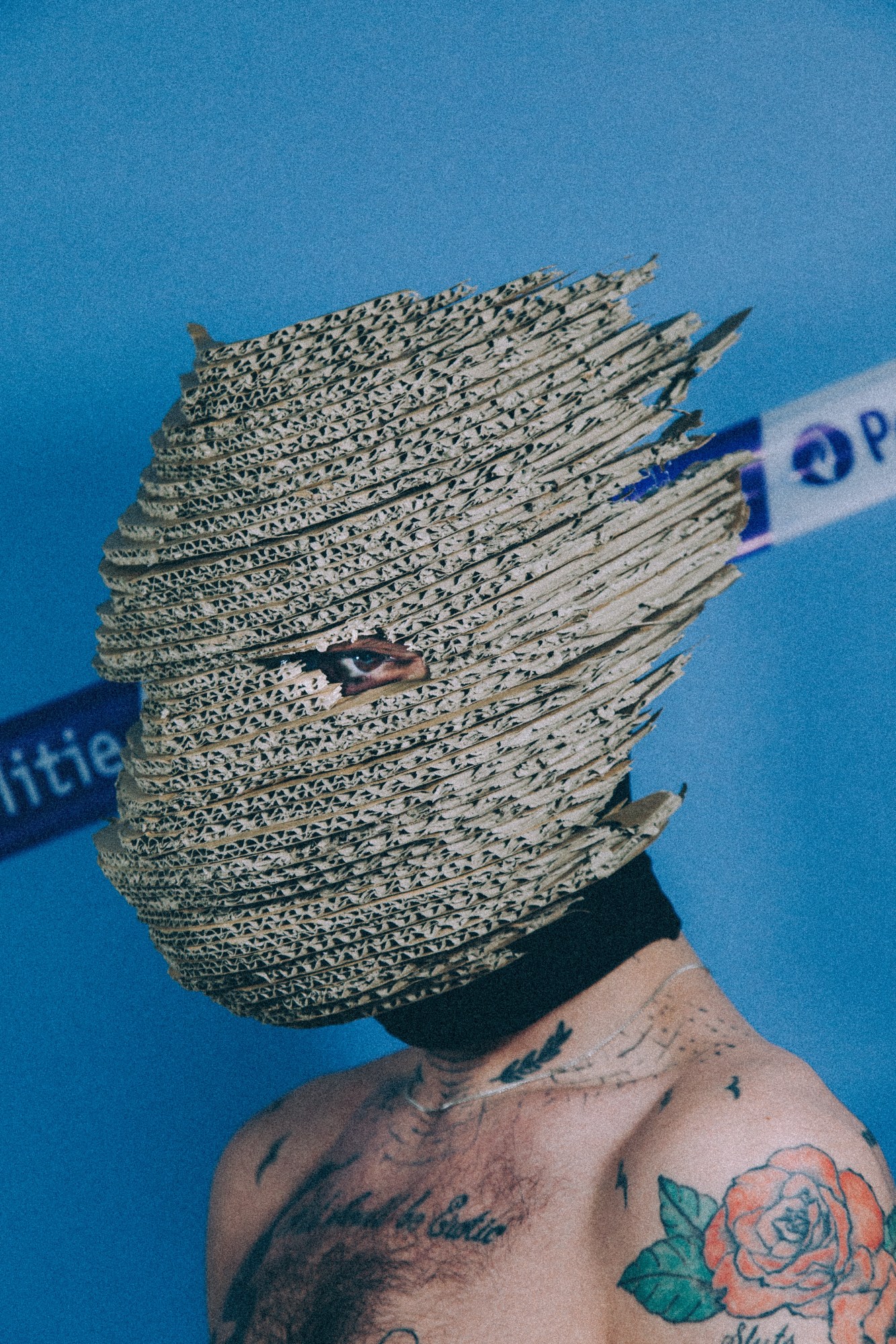
“I went crazy. All of a sudden I was tied to a house in a small town. I was used to being busy all the time, but I knew that I was creative and that I couldn’t just give up.” With the small amount of money he had, he started buying cheap materials so he would have something to do. “I have a background in fashion and I love to make things out of unconventional materials. I also played with the idea of doing something with headdresses for some time. The first step was to look around in my house to see what was useful.” He found a broken keyboard, took it apart, and turned it into a mask. This would be the start of a long-term project.
“I started making mask after mask, sometimes one in two days. They were reactions to old memories that came back to me, some cheerful, some traumatic – doing something with my memories right away helped me work out my emotions and give them a voice.” Like one mask with Barbie parts, that is a direct reference to his childhood when he preferred to play with dolls, but his father didn’t allow him to. Or a mask made from a chicken carcass that took him back to a time when his parents had almost no money for food. “The creative process has a therapeutic effect,” Shalva says. The stories behind his creations are very personal, and yet he has decided to share them with the world through self-portraits with explanatory texts on his Instagram.
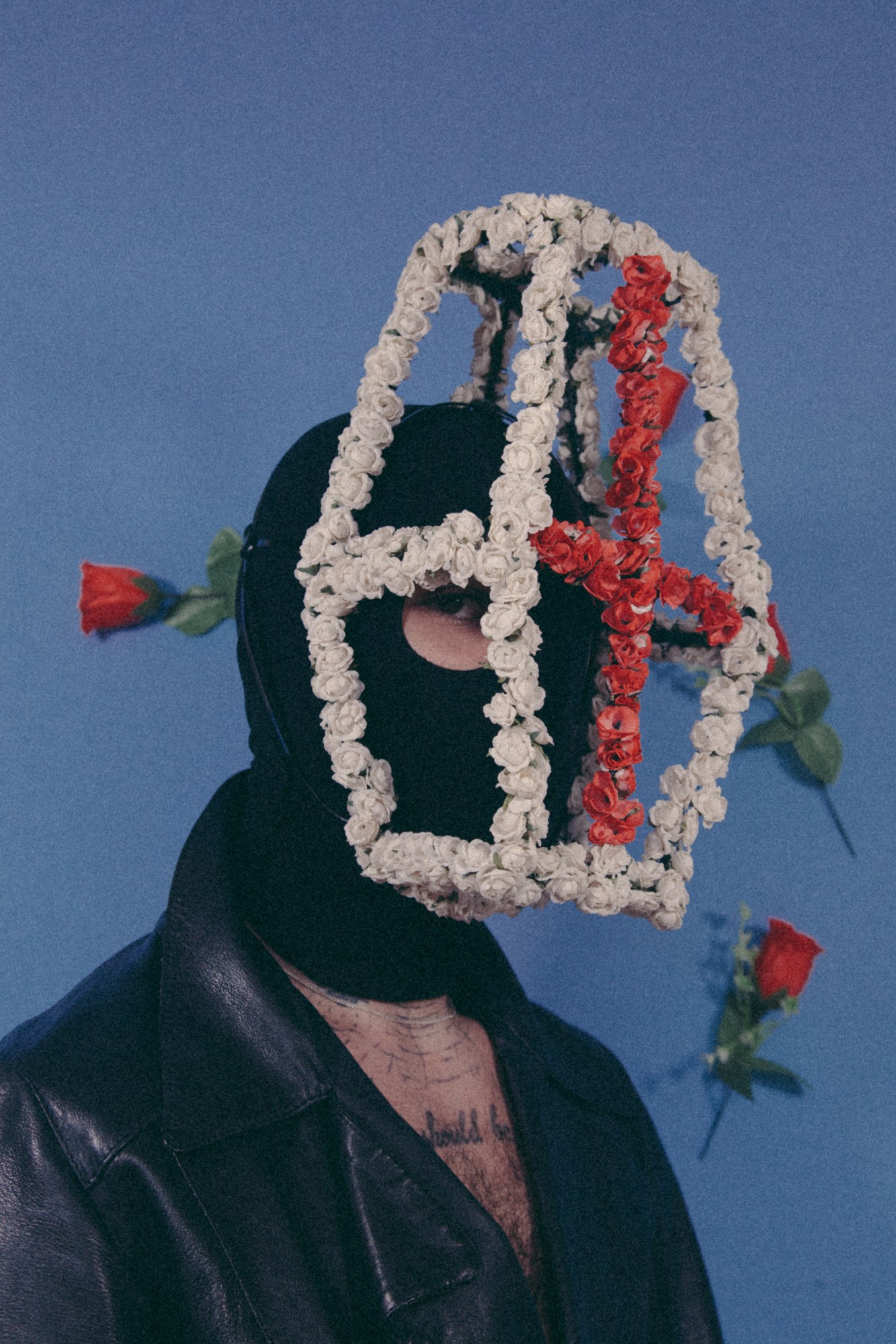
“I am very transparent about my work, and I like to share the stories behind my masks with the online community I have built.” Only a few months ago, his community was torn apart brutally. Shalva had been receiving messages from someone who claimed to have hacked his Instagram account – he would only give him his new password for two hundred euros. “This may sound hysterical, but I completely lost my shit. All these followers who had supported me and my work from the start meant a lot to me. Instagram offered me a safe environment to show my work, and suddenly it was gone.” Eventually, he refused to pay. “I was sad for a day or two, but then I decided to start with a clean slate.” It didn’t take long for him to get thousands of followers again. He even got an invitation to collaborate with the label Izzue at London Fashion Week. Various publications soon caught on.
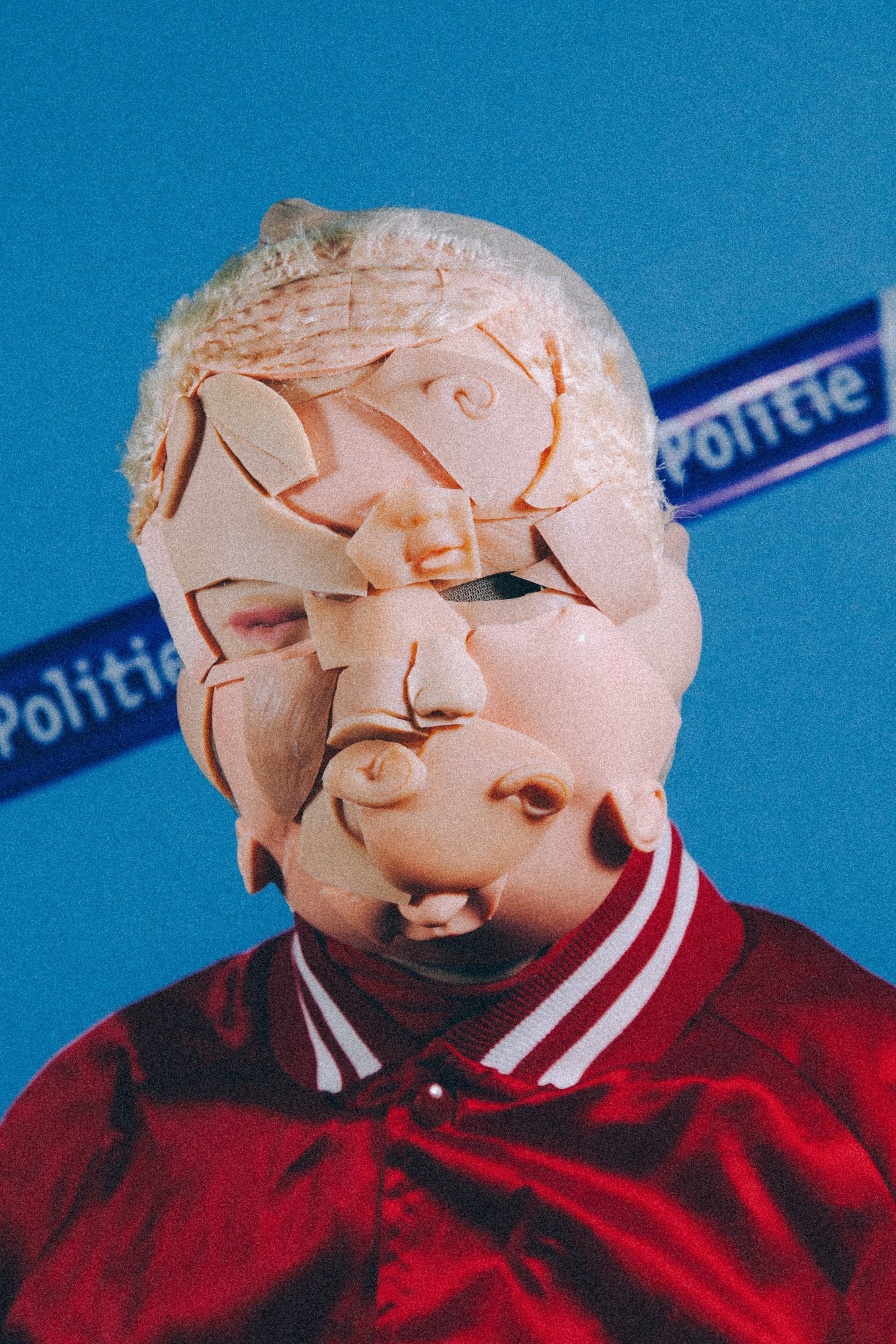
“I’ve even been approached by the Ministry of Culture in Georgia to represent the country at the Venice Biennale.” When I ask him whether that would be a bit difficult, given the complex relationship he has with the place where he grew up, he answers firmly: “No, on the contrary, I see it as an excellent opportunity to start a conversation about the experiences I’ve had there – experiences that may be personal, but probably sound familiar to many young Georgian people. Not only gay people, but every young person who doesn’t follow the norm. I hope to be able to give their stories a platform too.”
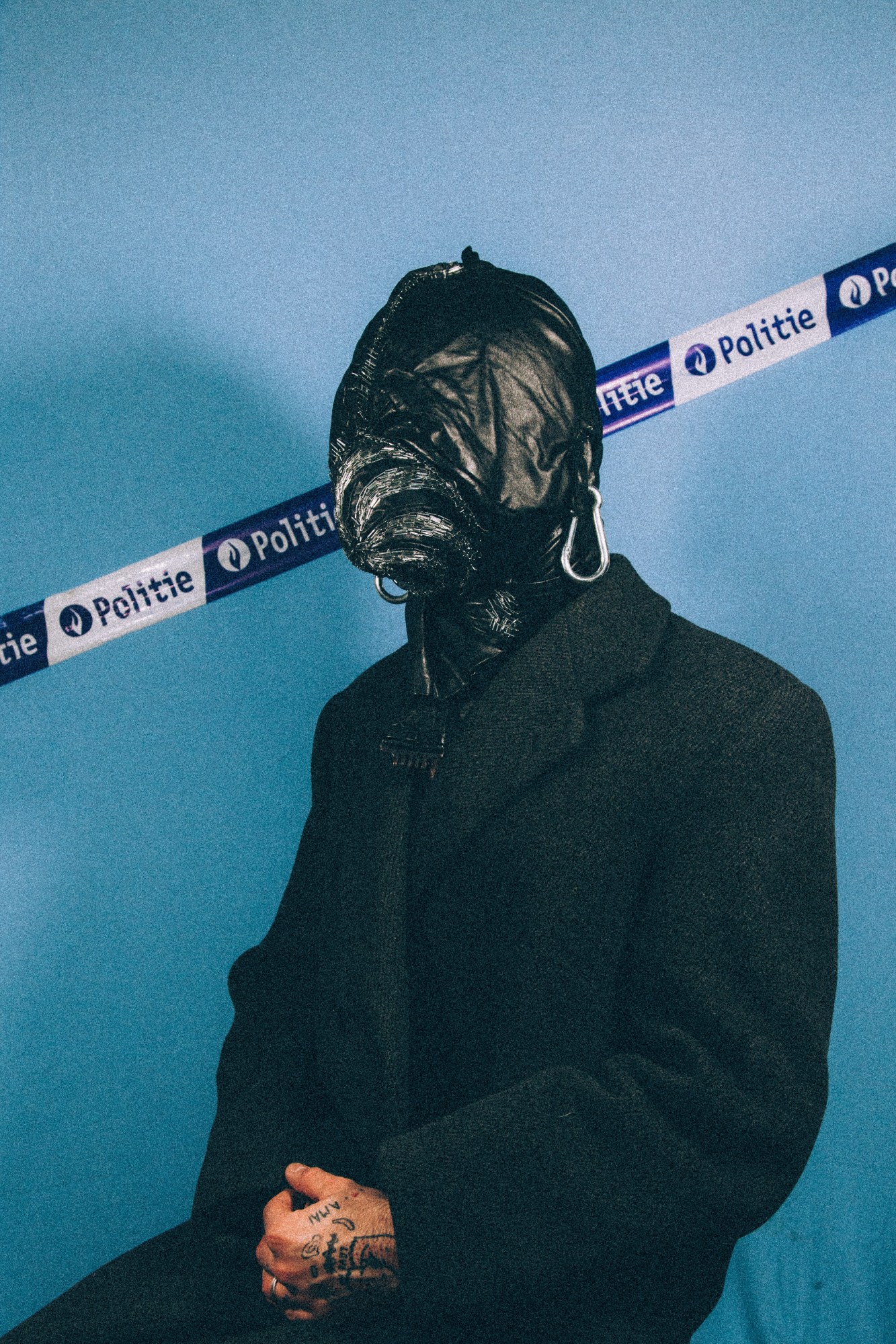
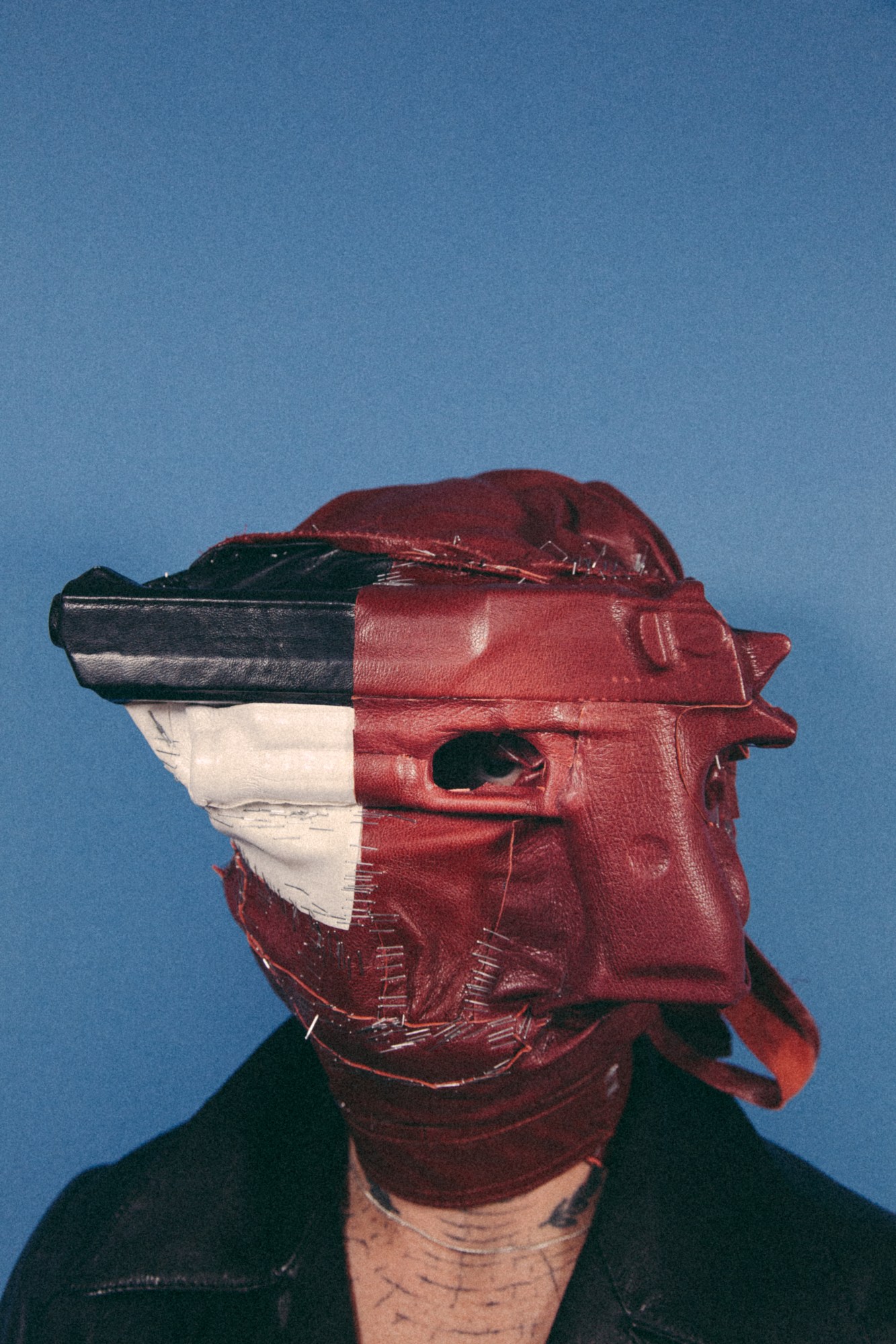
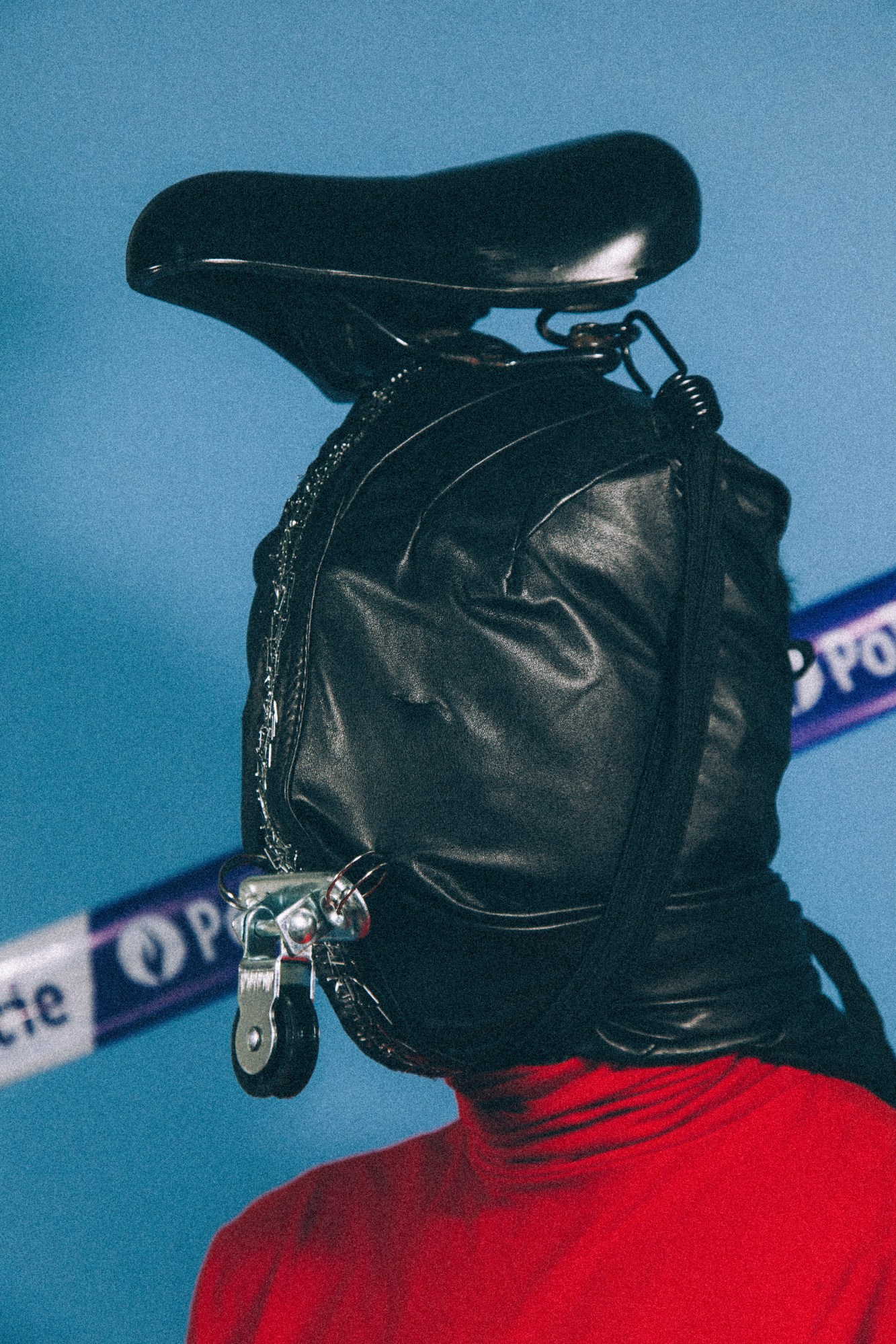
Credits
Photography Mayli Sterkendries
This article originally appeared on i-D NL.
